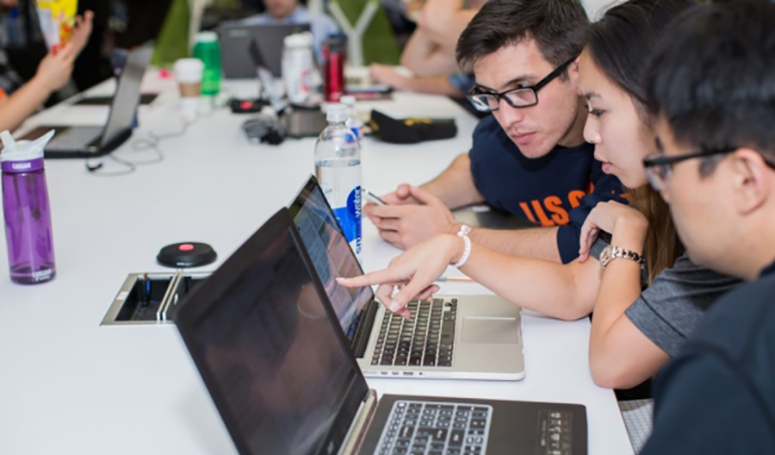Undergraduate Medical Education
Doctor of Medicine (M.D.)

The Office of Student Affairs offers academic enhancement programming for students seeking assistance with their academic skills. There are several ways in which students may receive this assistance.
Academic Advising
Academic advising at the Long School of Medicine is focused through the Office of Student Affairs, the Veritas Program, and Departmental Faculty Advising. This system of advisors assists students in completing academic requirements successfully and choosing elective coursework in an appropriate manner.
Office of Student Affairs
Drop-In Advising Hour
Students with questions related to academic advising are encouraged to attend the weekly Drop-In Advising Hour, hosted by student affairs deans and directors. During these sessions, students can ask questions and seek guidance about academic issues. Common questions include choosing correct electives, successful completion of licensing exams, and information about class modules. Every Wednesday from 1-2 p.m in Howe Conference Room (Library)
Individual Advising
Students seeking individual guidance about their academic progress through medical school can request individual appointments with deans and directors in student affairs.
Events
The Office of Student Affairs sponsors academic advising events for students at various stages of their academic careers. In the first year, academic advising begins, where the student affairs and curriculum deans answer student questions about the curriculum and student success. In addition, each year, class meetings are held. During these meetings, information on clerkship selection, elective selection, STEP timelines, and other pertinent academic issues are discussed. The class meetings for pre-clinical students are critical in informing students about their important academic milestones.
Academic Enhancement
Tutoring
Both study skills and content tutors are available for students who are having academic difficulty. Students are paired with knowledgeable peer tutors based on needed assistance. Study skills tutors are second-year medical students, assigned to help incoming first-year students with time management and study skills. Content tutors are fourth-year medical students who help first and second-year students who are having difficulty understanding the course material.
Study Skills Workshops
All first-year medical students have the opportunity to participate in Study Skills Workshops held throughout the year. The workshops cover topics including time management, using learning objectives, creating concept maps, exploring creative study methods, and others. Students are encouraged to attend these workshops to develop study and time management skills, which will benefit them throughout their medical school years and beyond.